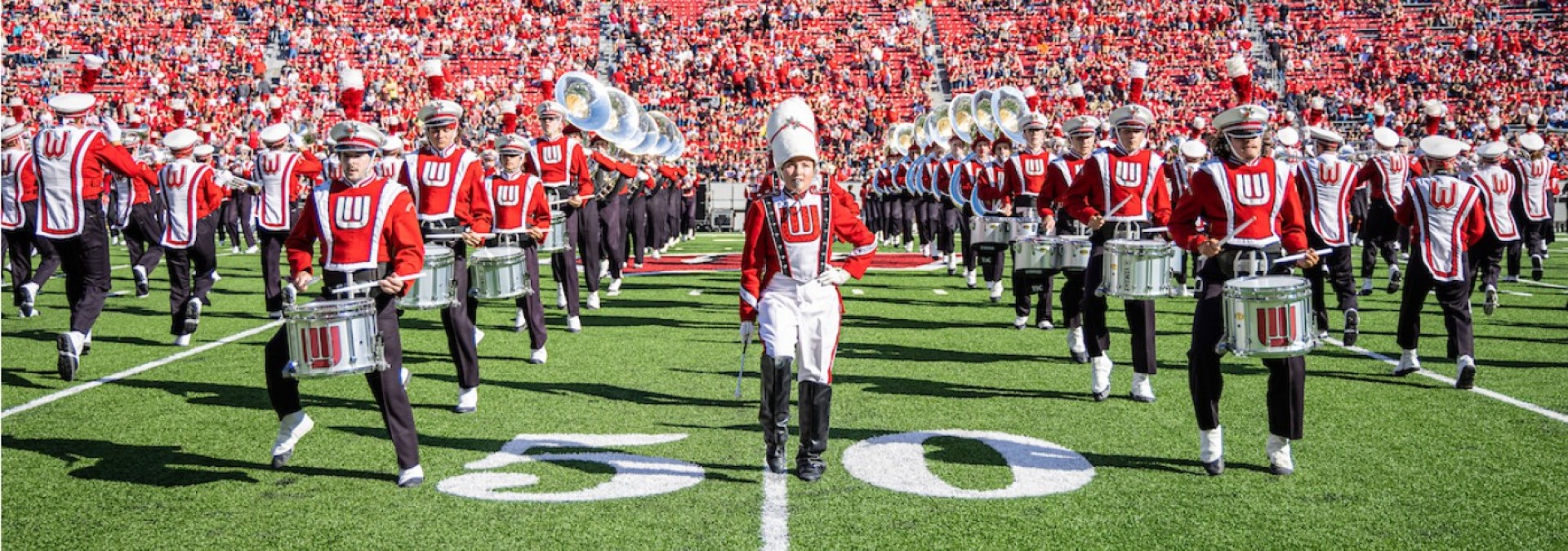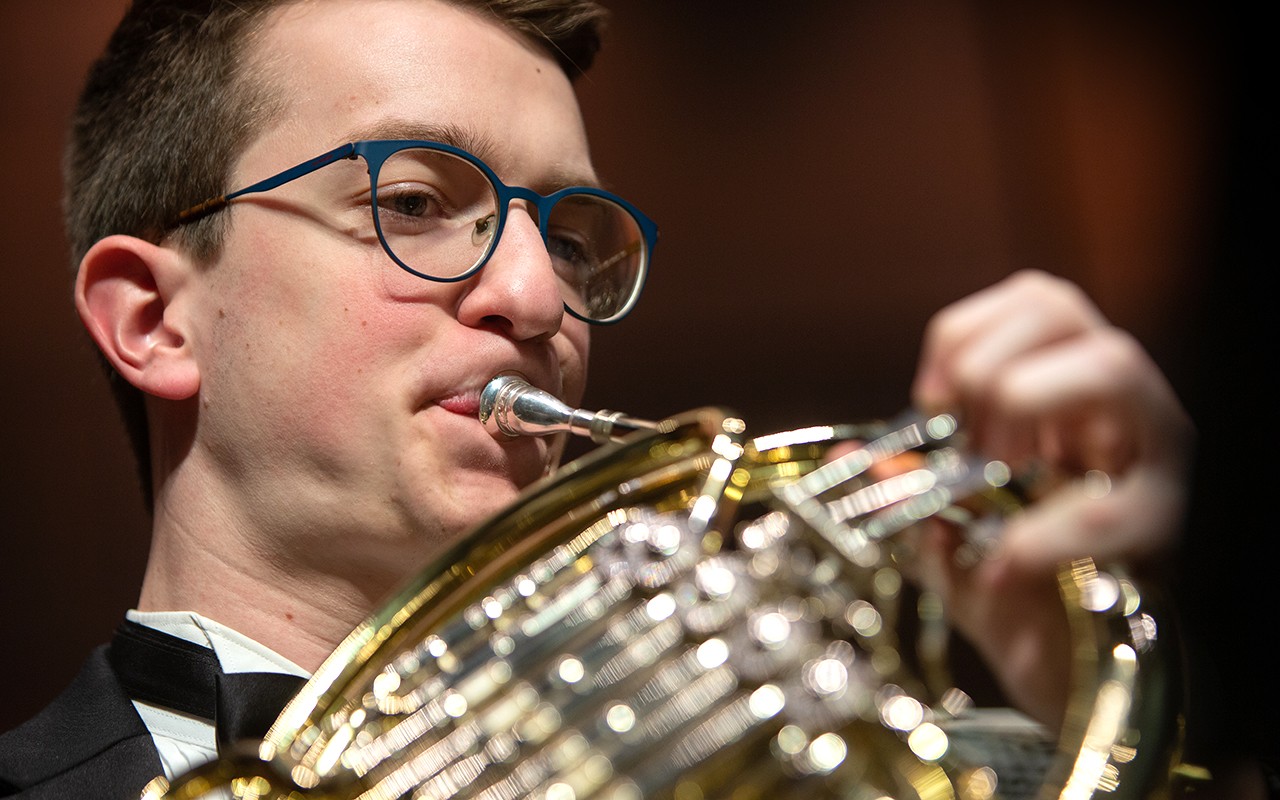Double the Passion, Double the Possibilities: A Music Student's Guide to Double Majoring
Explore how combining music with another field can open doors to exciting career opportunities.
Read More
Accoladi.com is for performing arts students and their families. We connect student artists with the opportunities they deserve.
We also support collegiate and summer enrichment recruiters, music teachers, and fine arts directors. To make sure everyone finds the right home, we've created dedicated websites for each community:
Students and parents: this is your home base, so please continue registering here on Accoladi.com.
Everyone else: begin your journey at the site tailored to your role.

Unlock the overlooked world of religious scholarships — where music, leadership, and faith combine to open real doors to college funding.
For many high school students, the excitement of college acceptance comes with a difficult question: How will I pay for it?
While scholarships and grants are often the first things students search for, there’s a hidden source of financial aid that too many overlook — religious scholarships.
If you or your family are active in a faith community, you may already have a powerful ally in helping fund your college education. Religious organizations — churches, synagogues, mosques, and community foundations — offer scholarships every year to students who share their values and commitments. And in many cases, these awards can make a significant dent in tuition costs.
Let’s explore how these scholarships work, who can apply, and how you can find the right opportunities for your future.
Religious scholarships aren’t just small awards — many offer thousands of dollars to help college-bound students avoid crushing student debt. They recognize students for their faith commitment, leadership, community service, and academic achievements.
And here’s the good news: You don’t have to be majoring in theology or religious studies to qualify. Many scholarships are open to students pursuing any major — as long as they meet the organization’s faith-related criteria.
Here are a few examples of faith-based scholarships available today:
Note: Religious scholarships aren’t limited to Christian organizations. Students from other faiths also have strong scholarship opportunities:
If you’re passionate about music and feel called to serve in worship leadership or church music ministry, there are scholarships designed specifically for you. Many faith-based organizations and religiously affiliated colleges offer targeted financial aid for students majoring in:
These scholarships support the next generation of worship leaders — vocalists, instrumentalists, songwriters, and music directors who will guide congregations in worship for years to come.
For most of these scholarships:
These scholarships are more than financial aid — they are investments in the future leaders of church worship and sacred music.
Eligibility varies by organization, but many religious scholarships require:
Some scholarships are open to students of all faith backgrounds, while others are specific to a denomination or religion.
It’s simpler than you might think! Here’s a step-by-step guide:
Can these scholarships be combined with other financial aid?
Yes! Religious scholarships are often "outside scholarships" that can be combined with federal aid (FAFSA), grants, and other awards.
Will religious scholarships affect my FAFSA?
Generally no. Most outside scholarships don’t affect your eligibility for federal aid unless the total exceeds your cost of attendance.
Are there scholarships for students of all faiths?
Absolutely. Students from Christian, Jewish, Muslim, Buddhist, Hindu, and interfaith backgrounds have opportunities to explore.
What if I’m undocumented?
Some religious scholarships are open to undocumented students — particularly those offered through private foundations or local congregations.
How competitive are religious scholarships?
It depends. Some are very competitive nationally; others, especially local or congregation-based scholarships, have fewer applicants and higher chances of winning.
Paying for college is one of the greatest challenges many families face — but faith communities have long understood the power of investing in the next generation. Religious scholarships aren’t just financial support; they are a declaration that your talents, your leadership, and your calling matter.
When a faith-based organization awards a scholarship, it’s about more than money — it’s about empowering you to step forward with confidence, rooted in your values and equipped with education.
Scholarships are waiting — for the student leading worship, for the choir member practicing late into the night, for the young leader organizing service projects.
It’s not just about money. It’s about mentors, community, and the future you’re building — one rooted in service and faith.
Start today:
Faith can move mountains — and sometimes, it can move tuition bills, too. But more importantly, it can move lives. Starting with yours.
Your education is part of a bigger story. Let your faith help you write the next chapter.
.png) ARTICLE GLOSSARY
ARTICLE GLOSSARY
Academic Calendar: The official schedule a university follows. Most schools abroad start in August or September and end in May or June—similar to U.S. colleges—allowing students to return home for summer.
Audition: A performance where a student plays, sings, or demonstrates skills to be evaluated for acceptance into a program or to win a scholarship.
Church Music: Music specifically composed or arranged for performance during religious services, including hymns, anthems, and contemporary worship songs.
Faith-Based Scholarship: Financial aid awarded by religious organizations to students who demonstrate leadership, service, and commitment to their faith community.
GPA (Grade Point Average): A standard way of measuring academic achievement in the U.S., often required as part of scholarship eligibility. It usually ranges from 0.0 to 4.0.
Leadership Experience: Activities where students take on responsibilities, such as leading a music ensemble, organizing events, or volunteering in community or faith groups.
Liturgical Music: Music used specifically for public worship in religious services, particularly within structured liturgical traditions (e.g., Catholic, Orthodox).
Portfolio: A collection of work that demonstrates a student's musical ability, leadership experience, or accomplishments — often used when applying for scholarships or auditions.
Reflection: A short written piece where students think deeply about their experiences, leadership, or goals — often required in scholarship applications.
Sacred Music: Music created for religious worship or spiritual expression, including traditional hymns, choral works, and modern worship songs.
Scholarship: Money awarded to a student to help pay for education, typically based on merit, leadership, service, or other qualifications — unlike a loan, it does not have to be repaid.
Service Hours: Volunteer work completed by students, often at schools, churches, or community organizations, that can strengthen a scholarship application.
Sight-Reading: The ability to read and perform music at first sight, without prior practice — a skill often tested in music auditions.
Statement of Faith: A written explanation of a student’s religious beliefs and involvement, sometimes required when applying for faith-based scholarships.
Worship Leadership: Guiding a congregation in singing and music during religious services, often requiring skills in both music and public leadership.
Start your college journey with confidence!
Browse our library of helpful articles and directories made just for performing arts students and their families. Whether you're choosing a school, planning campus visits, preparing for auditions, applying for scholarships, or getting ready to submit applications—this is your go-to place for everything college.


Explore how combining music with another field can open doors to exciting career opportunities.
Read More
Get ahead in your music education journey with strategic dual enrollment opportunities.
Read More.jpg)
Discover proven strategies to build meaningful relationships with college music departments before you apply.
Read More.jpg)
From Baroque to modern, fast to lyrical—contrasting solos reveal a musician's full range in college auditions.
Read More
Discover why mastering just a few bars of music can make or break an audition and reveal your potential.
Read More.jpg)
Make a great first impression with proper college visit etiquette and smart questions.
Read More
A comprehensive roadmap to navigate the music school application and audition process successfully.
Read More.png)
Sometimes the smallest gestures-like a simple thank-you -- open the biggest doors. Discover how one note of gratitude changed everything.
Read More
Discover how college fairs tailored for music students can open doors to top programs and help you make meaningful connections before you ever audition.
Read More
Private music lessons do more than sharpen skills — they unlock opportunity. Discover how one-on-one instruction builds confidence, hones performance, and opens doors to college auditions and scholarships.
Read More
Packed with proven strategies, expert insights, and inspiring real-life stories, it empowers musicians to turn performance anxiety into confident, expressive auditions.
Read More
Discover how marching band can do more than make music—it can open doors to scholarships, leadership roles, and life-changing opportunities.
Read More.jpg)
Where nerves meet opportunity, growth begins. Discover how one powerful experience can elevate your student’s talent—and their college application.
Read More.png)
Professors don't just admit talent—they choose students they won't mind teaching every Tuesday morning before coffee, touring Europe with next spring, and introducing to their colleagues without bracing themselves first.
Read More
Think a music degree is out of reach because of cost? Think again. Whether you're aiming for college scholarships or exploring grants from arts organizations, this guide helps you uncover the many ways to fund your passion — and shows why applying early and often is the key to making your musical dreams a reality.
Read More
From nerves to notes, this guide helps student musicians face audition day with clarity, confidence, and control.
Read More
Shedding light on the financial freedom performing arts students deserve—and the billions in performing arts scholarships many never knew existed
Read More
Talent is just the beginning. Learn how the right moves today—owning your child’s UTL name, building their brand, and shaping their story—can set your young performing artist on a path to lasting stardom.
Read More
Talent is just the beginning. Learn how the right moves today—owning your child's UTL name, building their brand, and shaping their story—can set your young performing artist on a path to lasting stardom.
Read More
From first solo to final audition—how a carefully curated repertoire list becomes a student’s personal record of growth, readiness, and artistic identity.
Read More
Don't let travel troubles ruin your big audition! This guide has everything you need to ensure you and your instrument arrive.
Read More
Discover how decoding a composition’s name can elevate your performance, impress adjudicators, and help you stand out from the competition.
Read More
How one meaningful connection with a music teacher can open doors to college, scholarships, and a lifelong mentorship — starting now.
Read More
You don’t need fancy gear to capture talent — just these smart, affordable tips that could turn an audition video into a scholarship-winning performance.
Read More
Discover why a liberal arts education isn’t just about academics—it’s a powerful launchpad for aspiring musicians to thrive in every stage of their careers.
Read More.jpg)
Choosing the right music degree isn't just about a major -- it's about mapping the future of your artistry. Discover the key differences between BM, BA, BFA, and BS programs and find your perfect path.
Read More
From educators, performers, and industry insiders who got tired of hearing “music isn’t a real career” and decided to answer with Broadway box-office receipts, royalty checks, and Grammy paydays.
Read More
Where Purpose Meets Performance: How Service Can Help Pay for Your Music Degree.
Read More
For those navigating the leap from talent to training and tuning both heart and mind to what’s next—this is your guide to finding the path that fits, connects, and inspires.
Read More.jpg)
A month-by-month roadmap designed to help aspiring music majors confidently prepare for college auditions—one scale, solo, and strategy at a time.
Read More.jpg)
Beyond the Name: Finding the Place That Helps You Find Your
Read More.jpg)
Discover the real perks, the hidden costs, and how to tell if coaching is the right
Read More.jpg)
Mastering college applications means mastering deadlines. Success hinges on precision, preparation, and unwavering commitment to each institution’s unique demands.
Read More.jpg)
Because affording your dream school shouldn't be a dream.
Read More
Where passion meets purpose — discover how talented musicians turn their love for music into a professional career serving their country.
Read More.png)
The music industry fuels the U.S. economy, driving schools to recruit creative, business-savvy students. Scholarships now target songwriters.
Read More.png)
How young artists can launch their careers and travel the world — without a college degree.
Read More
Because your talent deserves more than applause, it deserves a paycheck.
Read More
It’s not about impressing—it's about expressing.
Read MoreThe Accoladi Research Team is constantly tracking trends in performing arts collegiate recruiting, documenting scholarship procurement processes, and uncovering new resources for students and families. From the latest audition requirements to insider tips on securing funding, we’re always expanding our library— so, you can make informed choices with confidence.